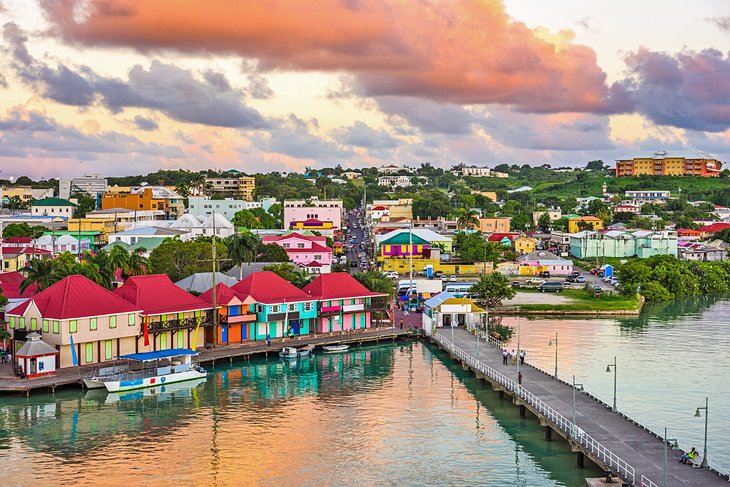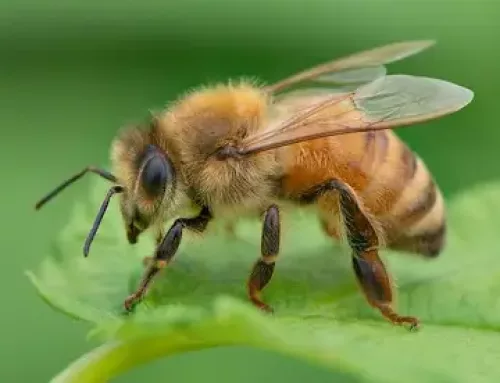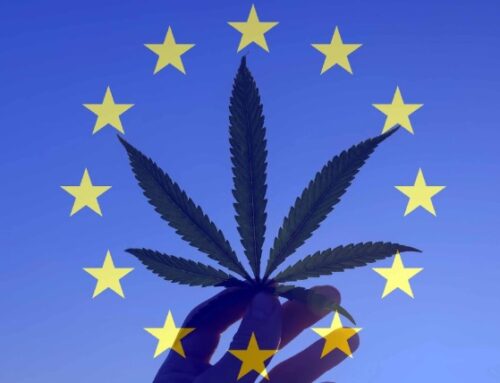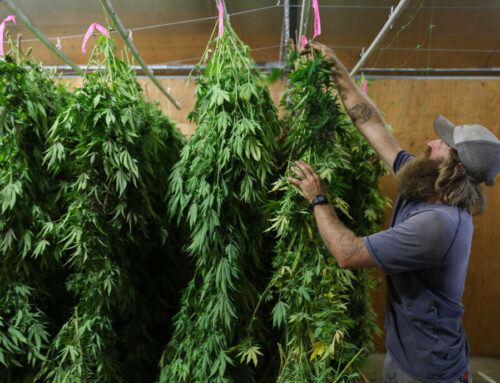Antigua & Barbuda Support Religious Freedom by Legalizing Cannabis for Rastafarians
LIBERTA, Antigua — In a momentous stride toward religious freedom and cultural recognition, the government of Antigua and Barbuda has granted Rastafari adherents the authority to cultivate and utilize their sacred plant. This historic decision represents a significant milestone for Rastafari practitioners who have long endured incarceration and discrimination due to their sacramental use of cannabis.
By becoming one of the Caribbean’s pioneering nations to acknowledge and support the cultivation and consumption of cannabis for Rastafari purposes, the twin islands are setting an example for other countries to follow. This move is expected to have a positive impact on similar religious rights campaigns globally, as public opinion and policies continue to shift in favor of medical and recreational cannabis.
Ras Tashi, a member of the Ras Freeman Foundation for the Unification of Rastafari, expressed his elation, stating, “We’re more free now.” Ras Tashi, who had been arrested multiple times for cultivating cannabis, refused to plead guilty, viewing it as a divine gift. In a recent gathering, he led chants and prayers in the foundation’s tabernacle, where fellow Rastafari members smoked marijuana, waved vibrant Rastafari flags, and passed chalice pipes. Concurrently, the government of Antigua and Barbuda has decriminalized cannabis use for the general public under the same legislation.
In addition to the extensive religious privileges granted to Rastafari adherents, individuals outside the faith are now permitted to cultivate up to four cannabis plants and possess up to 15 grams. Prime Minister Gaston Browne emphasized the importance of acknowledging the constitutional rights of Rastafari to worship and use cannabis as a sacrament.
“Just as we’ve recognized other faiths,” he stated, “it’s absolutely important for us to also ensure that the Rastafari faith is also acknowledged.”
The historical connection between cannabis and the Caribbean predates the emergence of the Rastafari faith. The cannabis plant was introduced to Jamaica in the 19th century by indentured servants from India, where it gained popularity as a medicinal herb. Its widespread acceptance was further fostered during the 1970s when Rastafari and reggae culture gained prominence through renowned music icons such as Bob Marley and Peter Tosh.

Rastafari communities have long endured discrimination and marginalization across the Caribbean islands, primarily due to their religious beliefs and sacramental use of marijuana. Prime Minister Browne, who himself grew up in poverty in Antigua, witnessed firsthand the mistreatment of Rastafari individuals by law enforcement and the exclusion of children with dreadlocks from schools. Motivated by his personal experiences, Browne appointed Ras Frank-I, a respected Rastafari leader, as ambassador to Ethiopia after assuming office in 2014.
In 2018, Prime Minister Browne publicly apologized to the Rastafari community for the oppression and religious persecution they had endured. He also advocated for the inclusion of Rastafari in the production and economic benefits derived from medicinal cannabis as reparations for the historical wrongs committed against this significant minority group.
The government’s efforts to promote equality include the establishment of a Rastafari-run public school and initiatives to decriminalize marijuana use. Earlier this year, the prime minister granted licenses to Rastafari groups, allowing them to cultivate cannabis for religious purposes under the country’s medical cannabis authority.
Although these changes have faced opposition from certain politicians and conservative Christian leaders in the region, Rastafari scholars commend Prime Minister Browne’s apology and his government’s actions, recognizing Antigua and Barbuda as a trailblazer that could inspire other islands to recognize the sacramental use of cannabis. Through a government lease, a former sugar cane plantation in Antigua has been transformed into a place of worship, sustainable farmland, and the headquarters of the Ras Freeman group.
Ras Richie, a member of the group and co-founder of Humble and Free Wadadli, praised the transformation, stating, “We can definitely celebrate and feel proud of… using lands that were once used to enslave our people to liberate our community.”
For the Rastafari community, the wearing of dreadlocks serves as a spiritual connection to the cosmos, enabling practitioners to receive messages from the planets, the sun, and the moon. Erasto, a member of the community, recalled the discrimination he faced growing up, sharing an instance when his mother had to cut his dreadlocks to ensure his admission to school.
The Rastafari community has persistently fought for their rights, participating in marches and conferences throughout the Caribbean islands. They have been instrumental in the repeal of discriminatory laws, such as the “Rasta Law” in the British Virgin Islands, which prohibited the entry of nonresident Rastafari and “hippies” into the territory for over two decades. Shakie Straker, Erasto’s mother and a prominent figure in the group, expressed her relief and gratitude for the recent developments, stating, “It’s 100% better now.”
The Rastafari community aims to further expand its influence, with plans to establish a museum, an Ital food store, and a sacramental cannabis dispensary. Ras Richie highlighted the growing recognition and respect for Rastafari worldwide, stating, “That’s the power we have now.” Antigua and Barbuda’s comprehensive efforts are now seen as a potential model for other Caribbean nations to follow, as they too consider the sacramental recognition of cannabis.



































